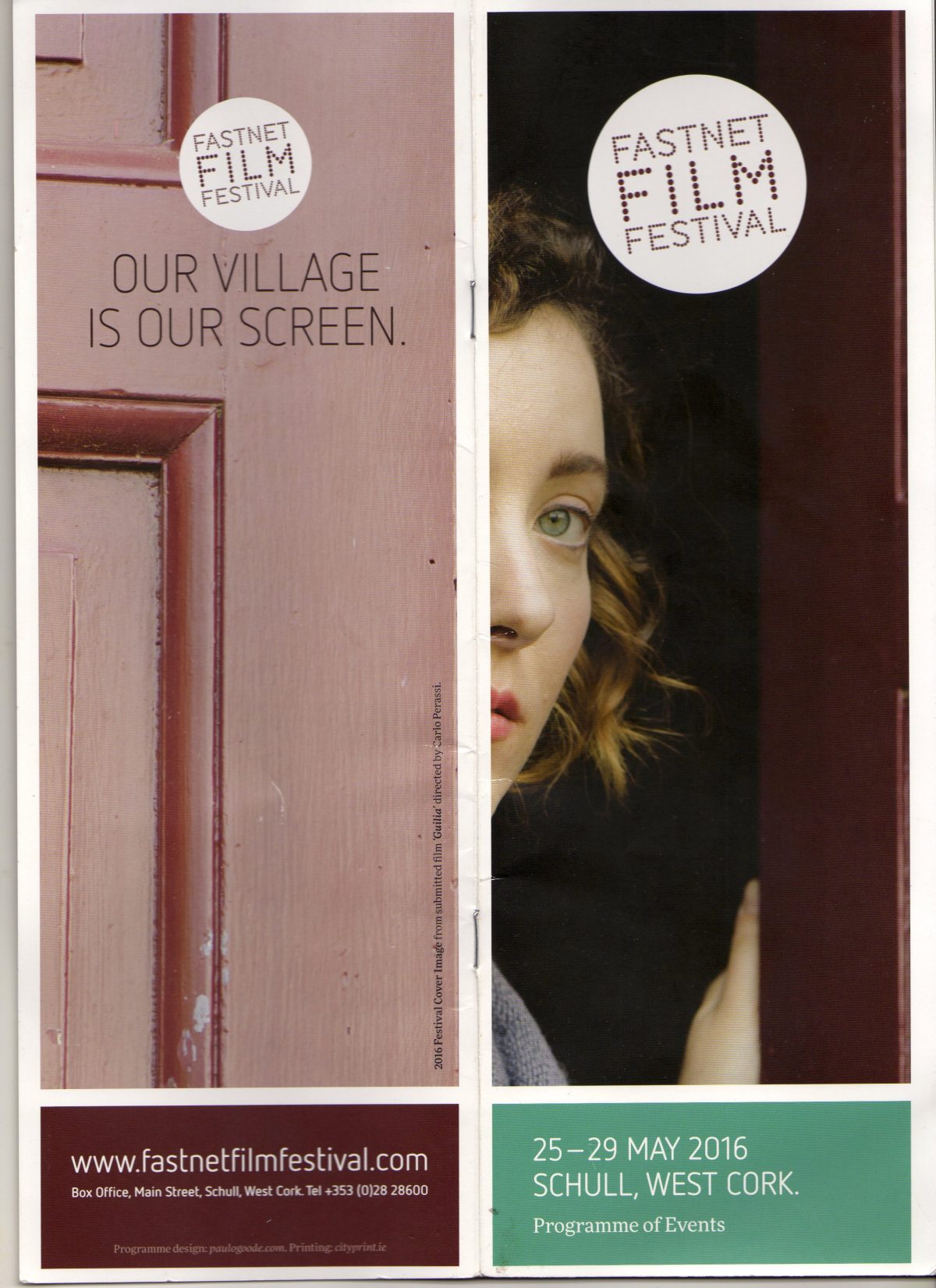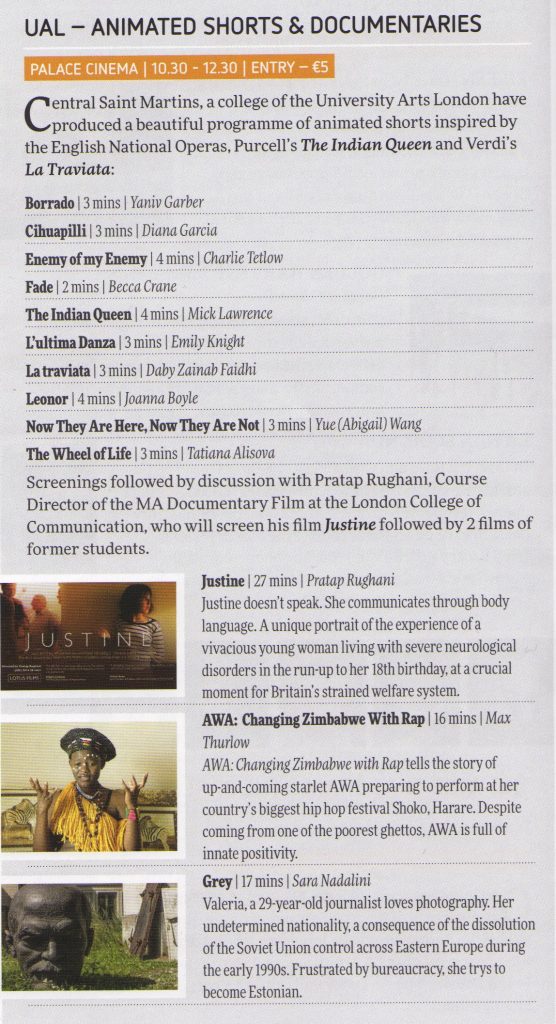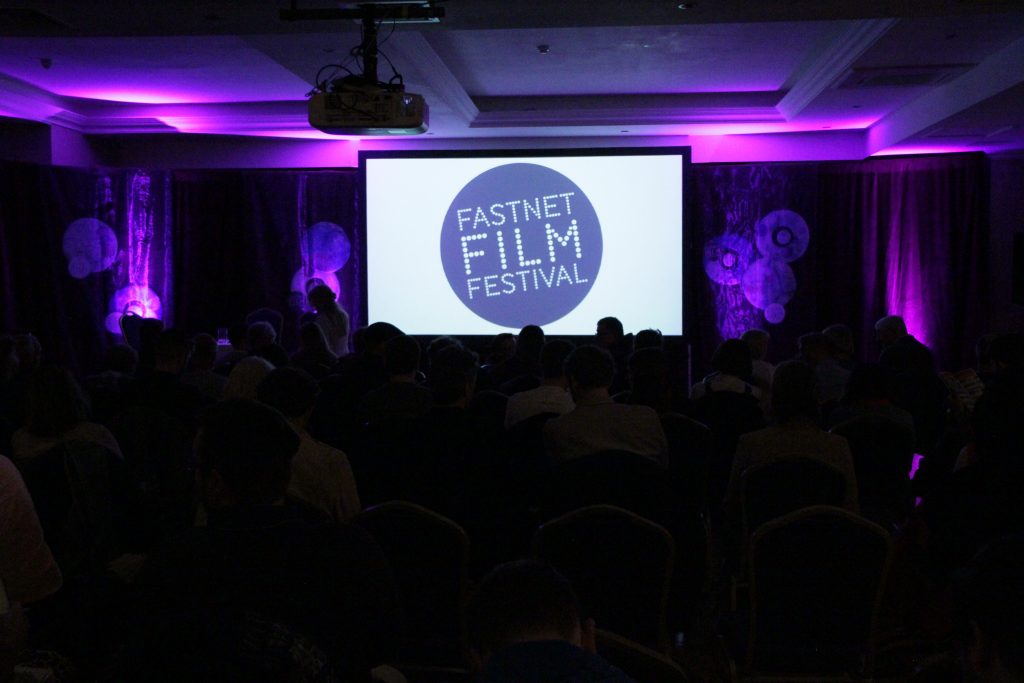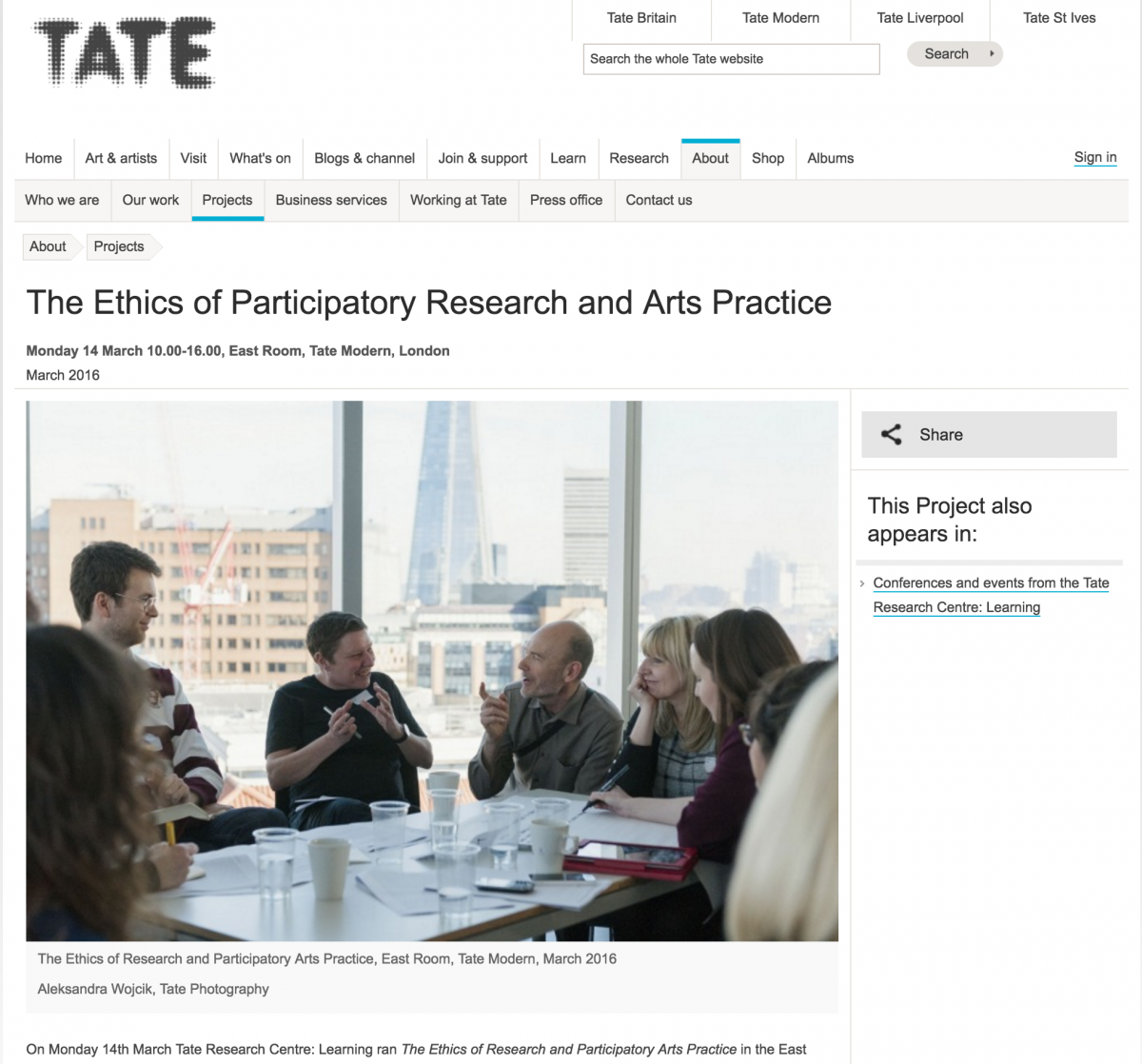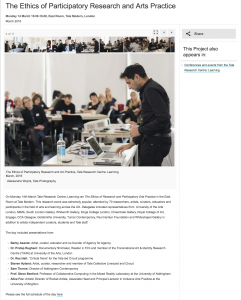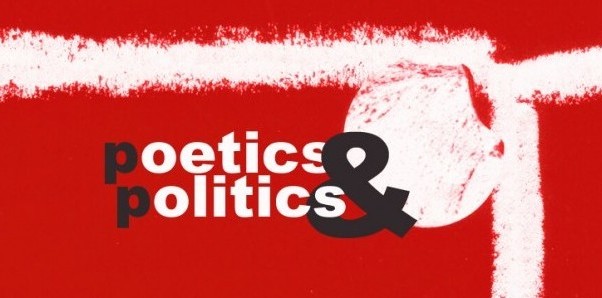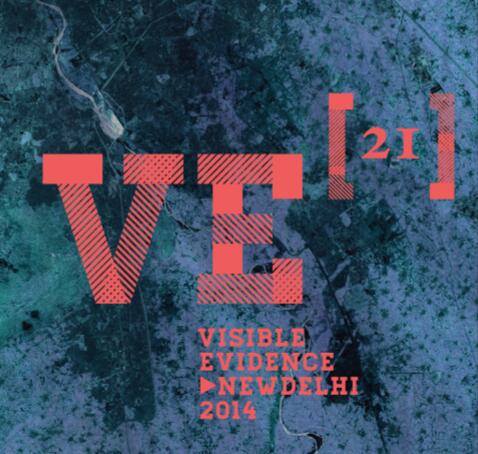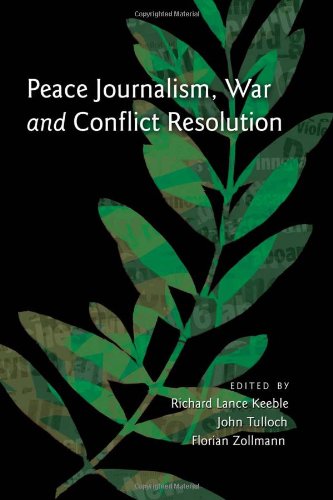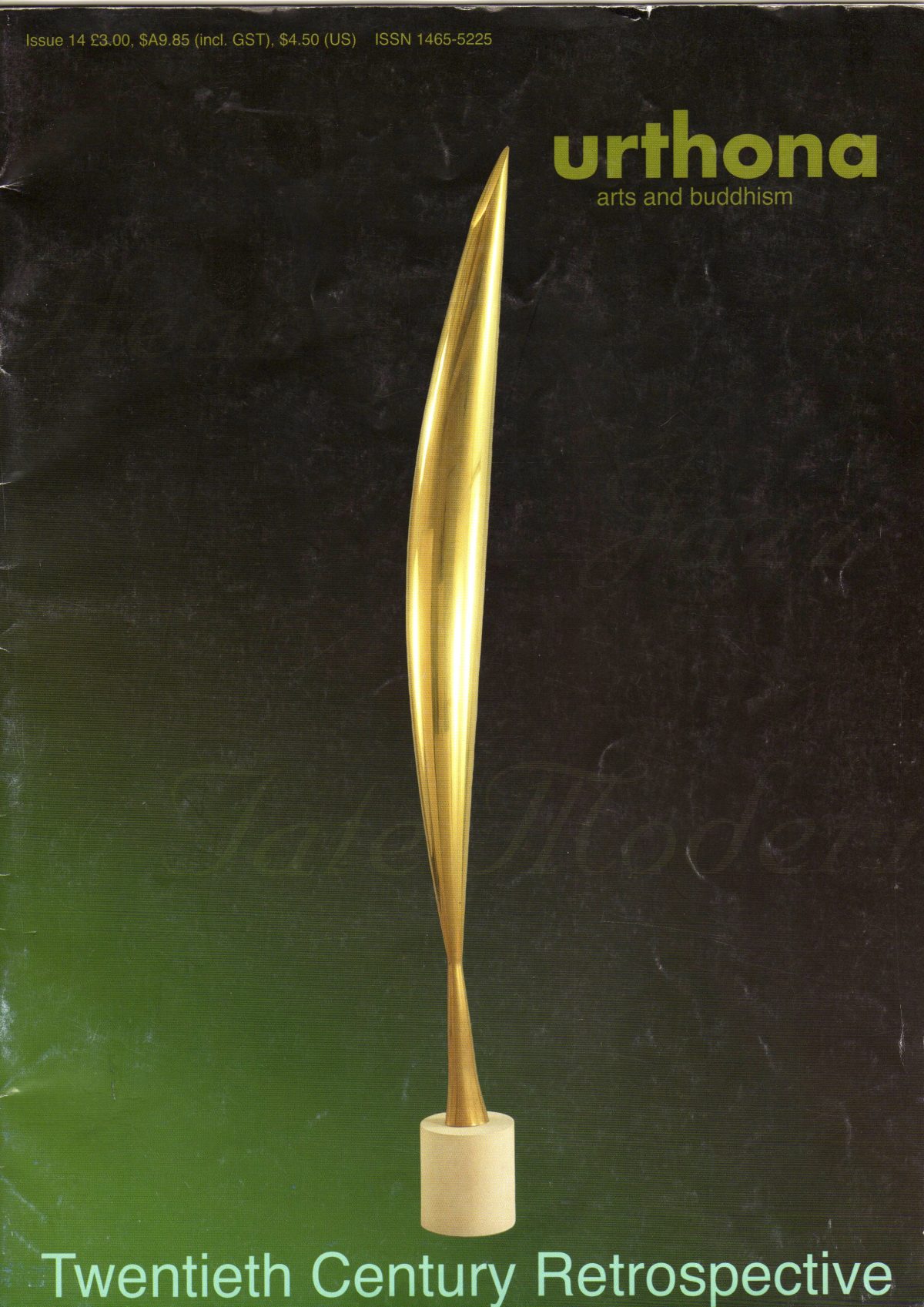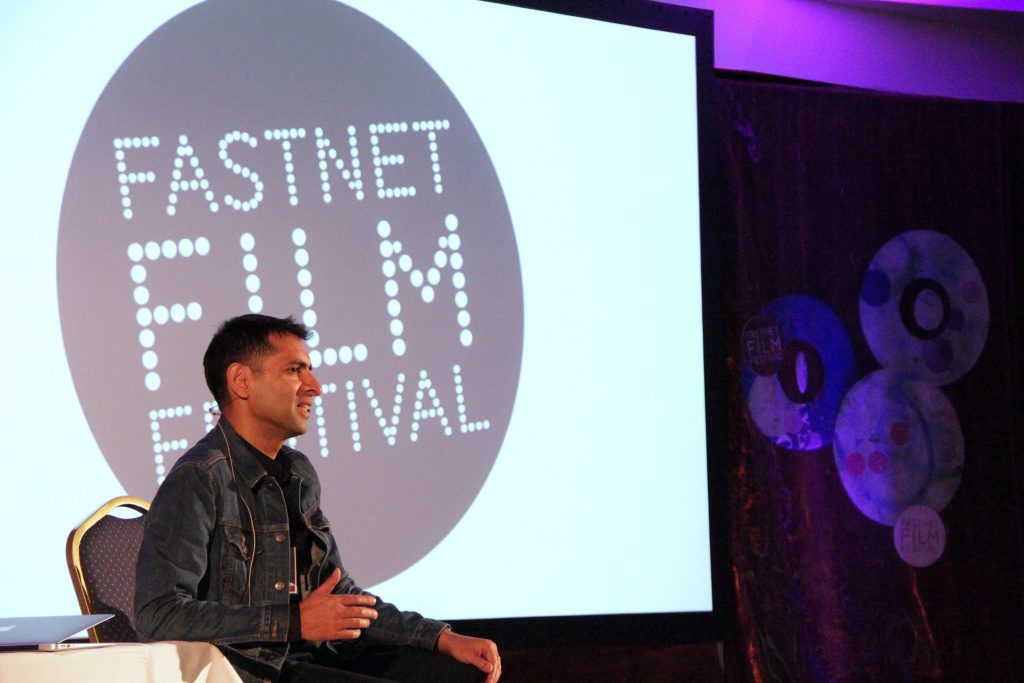 A programme featuring University of the Arts London Central St Martins MA Character Animation films, and MA Documentary Film presented by Dr Pratap Rughani, Reader in Documentary Film and Course Leader MA Documentary Film, London College of Communication, screened at Fastnet Film Festival in Schull, Ireland.
A programme featuring University of the Arts London Central St Martins MA Character Animation films, and MA Documentary Film presented by Dr Pratap Rughani, Reader in Documentary Film and Course Leader MA Documentary Film, London College of Communication, screened at Fastnet Film Festival in Schull, Ireland.
Tag: documentary
The Ethics of Participatory Research and Arts Practice, Tate Research Centre: Learning, at the Tate Modern
Monday 14 March 10.00-16.00, East Room, Tate Modern, London
The Ethics of Participatory Research and Art Practice event brings together leading researchers, artists, curators, educators and participants in the field of arts and learning, organised by the Tate Research Centre: Learning.
The Ethics of Participatory Research and Art Practice brings together researchers, artists, curators, educators and participants in the field of arts and learning to consider the current ethical challenges that face participatory research and arts practice today. The aim is to draw on a variety of experiences, to share and exchange approaches and create an open space where collaboratively we can work towards affirmative ethical strategies and methods. The event features presentations and group discussions focused on an ethics of consent, knowledge, ownership, research and practice. These ideas will be considered in relation to projects that present questions and challenges that will be addressed during the day though open discursive sessions.
Dr Pratap Rughani was an invited speaker: see this link to watch his presentation.
Speaker abstracts and biographies here.
Poetics and Politics Documentary Research Symposium, May 15-17th, 2015
“As was the case at the 2013 conference, the Poetics and Politics conference will provide an invaluable context for documentary-based research that both troubles and reinvigorates the discrepant categories of scholarly “theory” and cultural “practice.” The symposium invites participants whose work frames, historicizes, or embodies questions about the various possible relations of theory to practice in documentary research”.
FRIDAY MAY 15, 2015 DARC 108
6:00- 6:30pm WELCOME and OPENING REMARKS
6:30-8:00pm EPISTEMOLOGIES OF PRAXIS (Sharon Daniel, Hope Tucker, Pratap Rughani)
This panel gathers practitioners whose documentary work provide key provocations for this symposium. Interrogating and problematising how documentary epistemologies and meanings are constructed, this panel raises specific approaches for demystifying documentary-making as a practice of visible evidence. Questions considered by this panel include: the scope of documentary practice in the ‘fourth world’; documentary materiality as a source for relaying narratives of unresolved environmental disaster; and the ethical (consent) and aesthetic/affective concerns in documentary-making processes that involve asymmetric power relations between makers and subjects. The panel offers pathways for understanding reflexive praxis as a source of competing historical and affective epistemologies, more than simply a move to deconstruct the documentary artefact. Through this, the panel situates how documentary-making as a socio-historical and psycho-social practice intervenes in contemporary geo-political scenarios.
Poetics & Politics Abstracts and Programme
University of California, Santa Cruz USA
Visible Evidence XXI, the annual conference on documentary film, New Delhi, India, Dec 11- 14th, 2014
Chair: Kaushik Bhaumik
From Collaboration to Exploitation?
Pratap Rughani, University of the Arts London, UK
Collaboration and Ethics within an Emerging Media Complex
Elizabeth Miller, Concordia University, Montréal, Canada
Are You a Vulture? Reflecting on the ethics and aesthetics of atrocity coverage and its aftermath
Are You a Vulture? Reflecting on the ethics and aesthetics of atrocity coverage and its aftermath Rughani, Pratap (2010). Book Chapter published in: Peace Journalism, War and Conflict Resolution Peter Lang : Oxford, pp 157 – 172.
This chapter is framed by a sequence of documentary still images raising practice-based research questions about the nature of photographic representation of atrocity. Photographs are accompanied by practitioner reflections following a photographic essay responding to a series of caste-based murders in Khairlanji village, Maharashtra, central India.
Read / download Chapter.
Remembering Khairlanji CAUTION: You may prefer not to look at the following slides of the murdered Bhotmange family. They are included to help contextualise reflections on ethical questions that follow.
